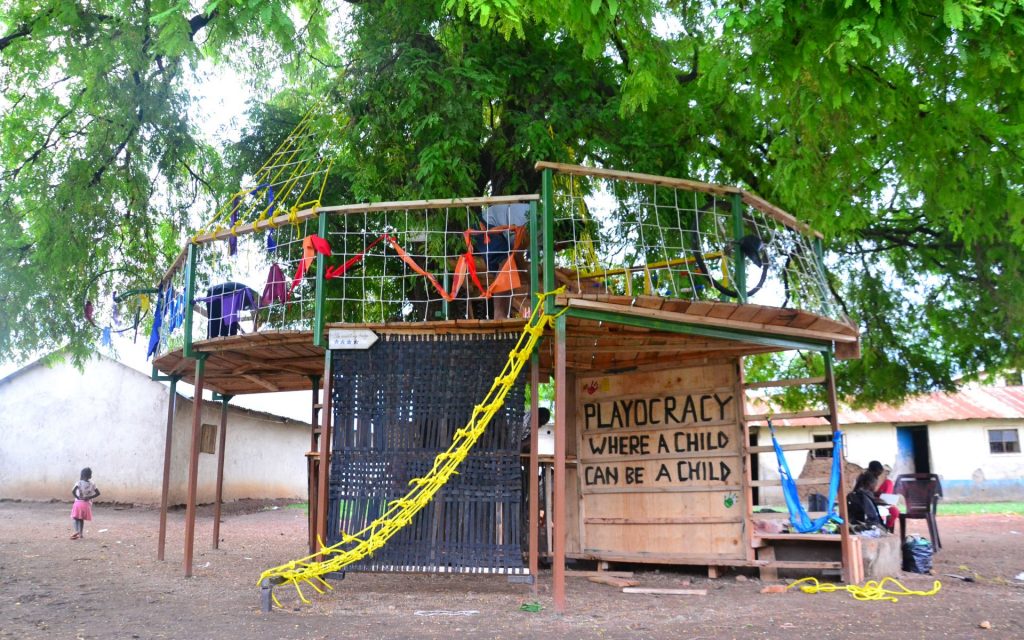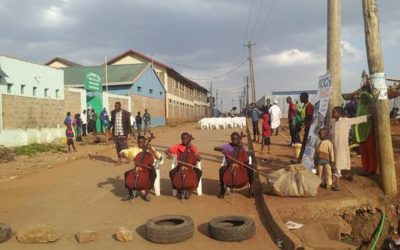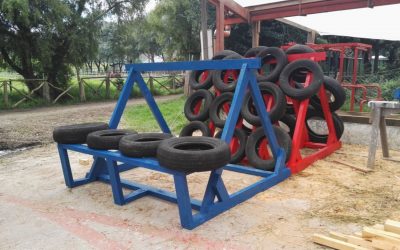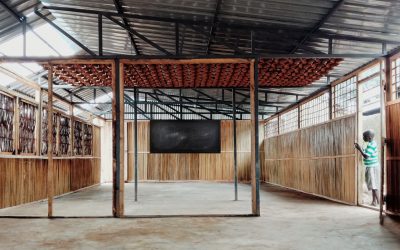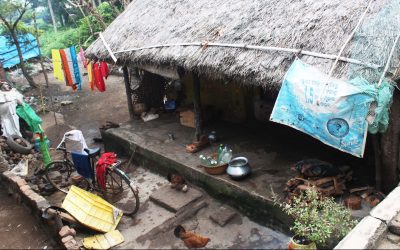Playocracy: Where a child can be a child
The project takes place in the informal settlements of Obunga in Kisumu, Kenya at Juliana Apbet Primary School. The school focuses on the education of orphans and vulnerable children. Troubled with the harsh realities of their immediate contexts, these children are often forced to grow up quickly and take adult responsibilities at an early age, thereby missing out on a vital part of childhood – playing. A space where they are allowed and encouraged to express themselves freely in play is missing. The school, similar to many other schools in Kenya and around the world, focuses primarily on a child’s ability to read and write; i.e; linguistic intelligence. But there are many activities through which a child can learn and develop on their way to becoming an adult.
This project aims at pedagogically transforming formative education by including creative play in both the teaching and the learning processes of a child. To encourage a diversity of perception and intelligences and create an environment where a child can be a child.
This project is not just a narrative exercise of our experiences, but is the revelation of a school of thought called Playocracy. Playocracy is an approach to learning where power is invested directly in children and is exercised by them through a system of self-controlled and self-directed learning. Playocracy is a tool to inject playful learning into conventional and obsolete forms of teaching. It bridges the gap between the limitations of teaching and the curiosity of a child. Playocracy in this project is manifested in the form of a playground that was built together with children in twenty days.
This project is not just a narrative exercise of our experiences, but is a revelation of a school of thought called Playocracy. Playocracy is a school of thought, where the supreme power is vested in the children and is exercised by them directly through a system of self controlled and self directed approach towards learning. Playocracy is a tool to inject playful learning into conventional and obsolete forms of teaching. It bridges the gap between the limitations of teaching and the curiosity of a child. Playocracy in this project has been manifested in the form of a playground that was built together with the children in twenty days.
Location
Obunga, Kisumu, Kenya
Duration
2017
Program
Include creative play in the teaching and learning process
Project type
Play School
Technology & Materials
Steel structure with eucalyptus wood flooring.
Contact
Achyut Siddu
Camilla Lundström
Sara Mohammadi
Virginie Mure
Partners
Zingira Community Crafts
Juliana Apbet Primary school
Donor
ASF Sweden and private donations
Links
